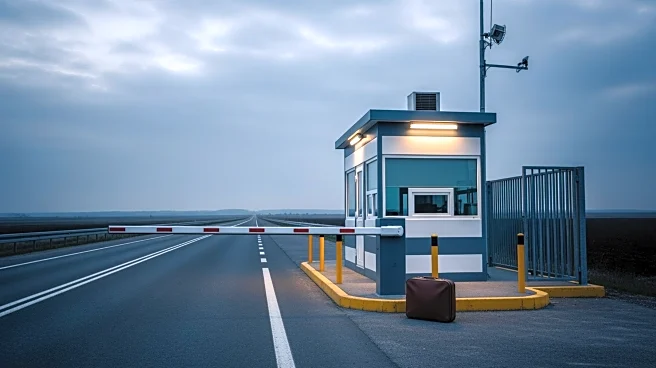What's Happening?
The Supreme Court has agreed to review the policy known as 'metering,' which limits the number of asylum seekers allowed to enter the U.S. at border crossings. This practice, used by both Democratic and Republican administrations, was struck down by lower
courts. The Trump administration sought to reinstate metering, arguing it is a critical tool during border surges. The Biden administration rescinded the policy in 2021 due to the pandemic, but the Justice Department continues to advocate for its importance. The case will be argued in the late winter or early spring.
Why It's Important?
The Supreme Court's decision on metering could have significant implications for U.S. immigration policy and border management. If reinstated, metering could affect thousands of asylum seekers, potentially limiting their ability to apply for asylum in the U.S. This policy is seen as a tool to manage border surges, but it has been criticized for violating constitutional rights and federal law. The outcome of this case could influence future administrations' approaches to border control and asylum processing.
What's Next?
The Supreme Court's review of the metering policy will likely lead to debates among political leaders, immigration advocates, and civil society groups. Depending on the court's decision, there could be changes in how asylum seekers are processed at the border, impacting U.S. immigration policy. Stakeholders will be closely monitoring the case, as it could set a precedent for future border management strategies.
Beyond the Headlines
The ethical and legal dimensions of metering raise questions about the balance between national security and human rights. The policy's impact on asylum seekers' rights and the U.S.'s international obligations to protect refugees will be scrutinized. Long-term shifts in immigration policy could result from the court's decision, affecting the U.S.'s role in global refugee protection.

















